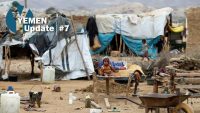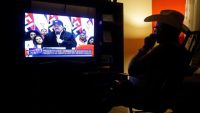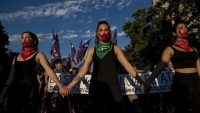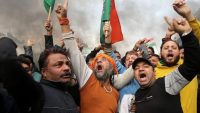
Crisis Group Yemen Update #7
This week, we look at how tribal dynamics in the north could affect the stalled peace process.
Trendline: As Stockholm Stutters, a Tribal Showdown in Yemen’s North
As UN Special Envoy Martin Griffiths continued to push for the implementation of the Stockholm Agreement to demilitarise the Red Sea port city of Hodeida, images circulated on social media on 4 March purporting to show Katyusha missiles hitting houses in Kushar, a small settlement in Yemen’s northern Hajja governorate.
The alleged Huthi missile strikes marked an escalation in a local conflict that has been gathering momentum for almost two months. The trigger of the fighting around Kushar remains uncertain, with Huthis and members of the Hajour, a tribe based in the Kushar basin, each blaming the other for breaching a truce instituted between them in 2013.… Seguir leyendo »



















